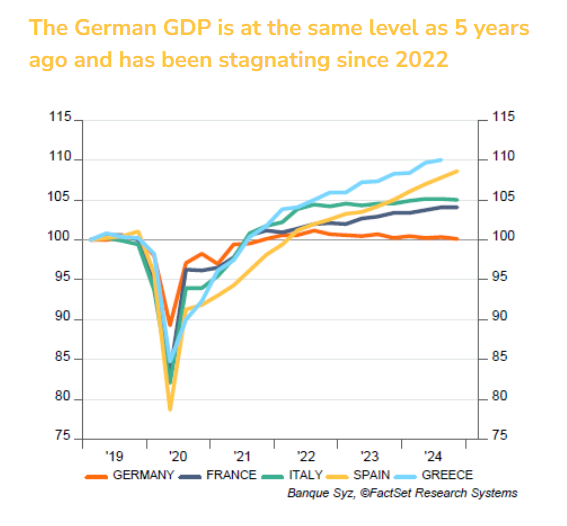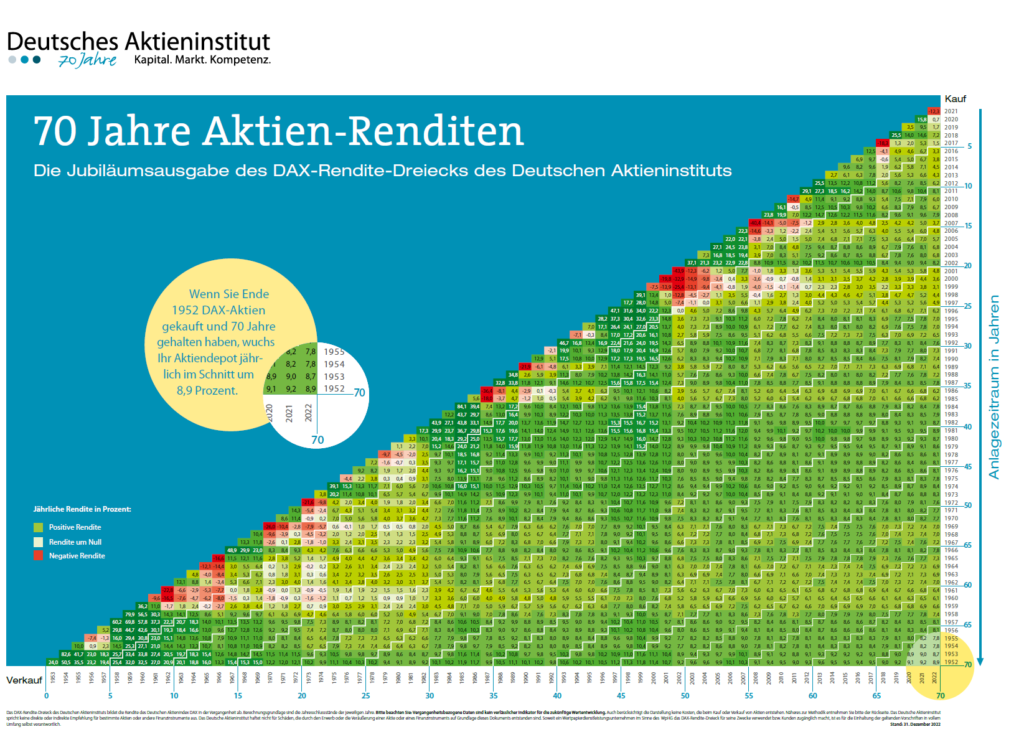The DAX Index of Germany was one of the worst performers in 2018 with a loss of over 18%. As the Germany cooled and global trade war fear escalated the DAX plunged heavily. The German GDP in was just 1.5% last year relative to 2.2% in 2017.
Unlike the consumption-based US economy, Germany is an export-oriented economy. So German firms are impacted more when the global economy is volatile and countries such as China start reducing their imports. More specifically, most of the components in the DAX are global exporters and depend on other countries for their revenue than the domestic economy.
Relative to the poor performance last year , the DAX index has shot up nicely this year with a rise of 6.1% so far those year. Yesterday it rose 2.63% as news emerged about a possible resolution to the US-China trade fight.
I came across a short piece on DAX index performance in MoneyWeek recently. The following is an excerpt from that piece:
Meanwhile, the eurozone as a whole is slowing too while the sugar rush from the Trump administration’s tax cuts has worn off, says David Smith in The Times.
No wonder the latest Bank of America Merrill Lynch survey of global fund managers showed 60% expect weaker global growth this year – the highest proportion since 2008.
Still, as The Economist notes, there is a more optimistic scenario. The discussions between the US and China could disperse the “trade war clouds”. Furthermore, “tax cuts and looser monetary policy in China could stimulate spending in the private sector”. This would bolster other Asian economies, and increase demand for European exports once again, which would “buck up activity in the eurozone”.
What’s more, European stocks are “cheap”, following the latest market slide, according to Jens Ehrhardt of DJE Kapital in Wirtschaftswoche, while Austria Boersenbrief points out the DAX companies remain on track to pay out a record sum in dividends in 2019. So the index could mount a strong recovery. There is a chance that in stark contrast to last year, it could be one of the year’s best-performing stockmarkets in 2019.
Source:Will the DAX dive further in 2019? by marina Gerner, MoneyWeek
Two key points to remember about the DAX Index:
1.The DAX index is a total return index – meaning dividends are included in its calculation. So a higher dividend payout should boost DAX returns further.
2.The CAPE ratio for Germany at the end of 2018 was 16.4 compared to 26.8% for the US. So the German market is cheaper. In addition, the Dividend Yield for German stocks were 3.2% relative 2.1% for US stocks (Data Source: Star Capital).
Note: Dividend withholding taxes for US residents would reduce that 3.2% yield.
Since Germany is the economic powerhouse and is one of the largest economies of the world, it worth watching how German equities perform this year. It might be possible Germany may be a winner this year. Considering German stocks have had a strong start they may be able to maintain that momentum and outperform other developed markets this year.
Related ETF:
- iShares MSCI Germany Index Fund (EWG)
Earlier:
- Three Differences Between DAX And FTSE 100 Indices
- Six Facts About DAX
- On The Long-Term Performance of Germany’s DAX Index
- Why You Should Own German Stocks
Disclosure: No positions



